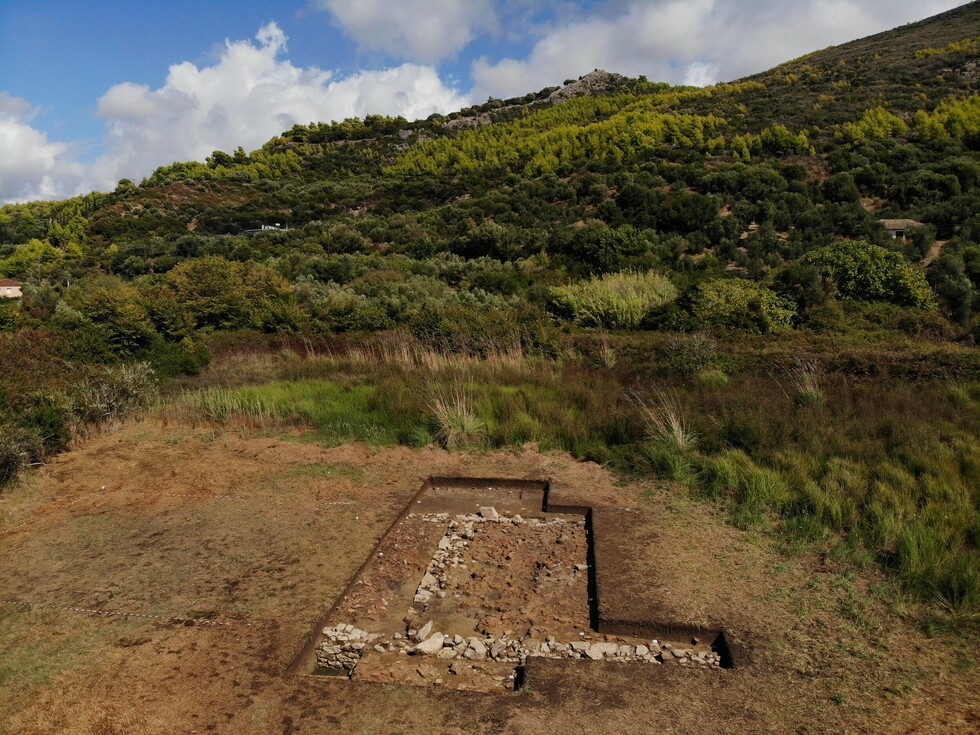Archaeologists have discovered a 2,500-year-old ancient structure in the western Peloponnese, which may be the temple Greece dedicated to the ancient god of the sea, Poseidon.
According to Ekathimerini, the find was announced by the University of Mainz in Germany, which is one of the partners in the excavation, along with the Austrian Archaeological Institute, the University of Kiel and the Ephorate of Antiquities of Elis. The excavation work started this year at the site of Kleidi Samikou.

“The ancient Greek historian Strabo referred to the presence of an important shrine located on the west coast of the Peloponnese some 2,000 years ago. Remains of such an Archaic temple have now been uncovered at the Kleidi site near Samikon, which presumably once formed part of the sanctuary of Poseidon,” the university explained according to Ekathimerini.
The early temple-like structure was located within the Poseidon sanctuary site and “was quite possibly dedicated to the deity himself,” it said, pointing to the location of the structure as being particularly significant.

“Along the extended curve of the Gulf of Kyparissa is a group of three hills of solid rock surrounded by coastal alluvial sediments in an area otherwise dominated by lagoons and coastal swamps. Because this location was easily accessed and secure, a settlement was established here during the Mycenaean era that continued to flourish for several centuries and was able to maintain contacts to the north and south along the coast,” the university said.
An extensive archaeological, geoarchaeological and geophysical analysis of the structure is to be conducted over the next few years, it added.
Source: Ekathimerini

